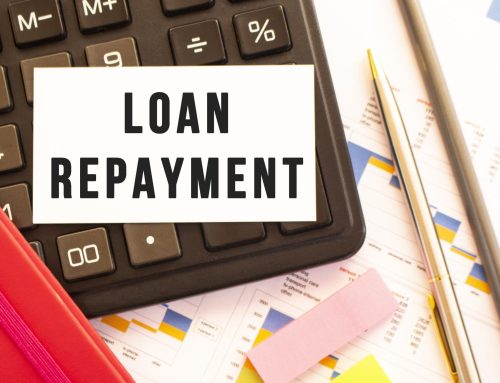Losing a job, facing a medical emergency, or experiencing a business setback can shake up your financial plans. If you’ve missed a few personal loan payments in Singapore, it might feel like you’ve fallen into default, which means you’re not keeping up with the agreed payments. I know this can be stressful—it can lower your credit score, make it tougher to secure future loans, and even lead to late fees or legal issues.
But don’t worry; defaulting doesn’t have to be the end of the road! This guide is here to help you navigate through it and find ways to recover your financial stability.
Step 1: Face the Music, Then Make the Call
So, the panic has subsided slightly, and you’re ready to tackle this personal loan default head-on. Excellent! Your first move is crucial: a brutally honest look in your financial mirror, followed by a brave conversation with your lender.
Know Your Numbers: The Harsh Reality Check
Before you can fix anything, you need to know exactly where you stand. Grab every bill, bank statement, and income slip. How much money is actually coming in? How much is necessary for living expenses (rent, food, utilities)? Be realistic, not optimistic. This isn’t about blaming yourself; it’s about crunching the numbers to see what you can afford to pay towards your personal loan, even if it’s less than before. This clear picture empowers you for the next step.
Pick Up the Phone: Your Lender Isn’t the Enemy (Yet)
It’s tempting to ignore those calls, but trust us; silence is your biggest foe here. Proactively contacting your lender is not a sign of weakness; it’s a strategic power move. Explain your situation calmly and honestly. Many lenders, especially in Singapore, prefer to work with you to recover the debt rather than jump straight to drastic measures. They might offer solutions like:
- Temporary reduced payments: A short-term breather.
- Loan restructuring: Adjusting your interest rate or repayment period.
- Payment deferral: A pause, usually with interest still accruing.
The “Cure Period”: Your Grace Period Lifeline
Here’s a vital term to know: the “cure period.” Many personal loan agreements in Singapore include this clause. It’s a specific window (e.g., 30 or 60 days) after you miss a payment, during which you can “cure” the default by catching up on missed payments and associated fees. If you act within this period, you can often avoid more severe penalties like the loan being declared immediately due and payable or legal action. Use your honest financial assessment to propose a plan during this critical window. Communication is your bridge to recovery.
Step 2: Explore Your Path to Recovery
So, you’ve taken the first brave step of acknowledging the default on your personal loan. Now comes Step 2: Exploring Debt Recovery and Negotiation Options. Don’t be surprised if your mailbox starts overflowing and your phone rings off the hook – these are common lender actions.
When Lenders Come Calling
Initially, you’ll receive polite, then increasingly firm, letters of demand from your lender. These are formal requests for payment. If these don’t yield results, they might involve a collection agency. These agencies are third-party companies hired to recover the debt. While their methods can be persistent, remember you have rights!
Your Power to Negotiate
Here’s where you take back some control. Don’t hide; engage! Your lender wants to recover their money, and often, they’re open to negotiation strategies. Can you propose a more realistic repayment plan with lower monthly installments, even if it extends the loan term? Be honest about your financial situation and offer what you can afford. Sometimes, they might even consider a partial waiver of late fees or interest.
Another powerful tool is mediation. This involves a neutral third party helping you and the lender reach a mutually agreeable solution. It can be less intimidating than confrontation and often leads to better outcomes.
Knowing Your Rights
Crucially, understand your rights as a borrower during debt recovery. In Singapore, there are regulations to protect you from harassment. Collection agencies, while persistent, cannot:
- Threaten you with violence or harm.
- Use abusive language.
- Harass you at unreasonable hours (e.g., late at night or early morning).
- Misrepresent the amount you owe.
If you experience any of this, document it and seek legal advice. Defaulting on a personal loan is tough, but knowing your rights and options can help you navigate this period.
Step 3: Understand Legal Action When Push Comes to Shove
You’ve tried to communicate, perhaps even negotiated, but sometimes, a personal loan default escalates. This is where things can get serious, as lenders might initiate legal action to recover their money.
When Does Legal Action Begin?
Lenders usually don’t jump straight to court. They’ll send reminders and final demands and perhaps engage debt collection agencies first. However, if these efforts fail, or if you consistently ignore their attempts to contact you, they might issue a Writ of Summons. Think of this as an official notification from the court that legal proceedings have begun against you. It’s their way of saying, “We’re serious about getting our money back, and we’re using the law to do it.” This typically happens when a significant amount is owed, and all other recovery avenues have been exhausted.
Through the Courts: What to Expect
If a Writ of Summons is issued and you don’t respond or settle, the lender can apply for a Default Judgment. This means the court rules in their favor because you haven’t defended yourself. A court judgment is a powerful tool for the lender. With it, they can pursue various enforcement actions. This could include:
- Garnishment of Wages: A portion of your salary might be directly deducted to repay the debt.
- Seizure of Assets: The court can order the sale of your assets (like property or vehicles) to settle the debt.
- Bankruptcy Proceedings: In severe cases, especially for large debts, the lender might initiate bankruptcy proceedings against you.
Your Best Defense: Legal Advice
Facing legal action for a personal loan default is daunting. This is NOT the time to go it alone. Seeking legal advice from a qualified lawyer is absolutely critical. A lawyer can explain your rights, assess the validity of the lender’s claim, negotiate on your behalf, and represent you in court if necessary. They can also help you understand the timelines involved in court proceedings, ensuring you don’t miss crucial deadlines for responding to summons or attending hearings. Remember, ignoring legal documents only makes matters worse. Understanding the process and acting decisively can significantly impact the outcome.
Conclusion
Defaulting on a personal loan can be challenging, but it’s just a hurdle, not the end. Start your journey to financial recovery by creating a realistic budget and sticking to it. Every dollar saved and debt paid is progress. Boost your financial literacy by understanding interest rates and debt management. If you feel overwhelmed, don’t hesitate to seek help from credit counseling agencies for personalized advice.
Be proactive: regularly check your credit report and stay informed about your financial status. With discipline and knowledge, you can avoid future defaults and build a stronger financial future. You have the power to turn this around, and Avis Credit is here to support you!
FAQs
1. What exactly is a personal loan default in Singapore?
It means you’ve failed to make your agreed-upon personal loan payments for a specified period, usually after several missed installments.
2. How soon after missing a payment can I be considered in default?
While terms vary, lenders typically consider you in default after you miss a few consecutive payments, as outlined in your loan agreement.
3. Will defaulting affect my credit score?
Absolutely, yes. Defaulting will severely damage your credit score, making it very difficult to get new loans or credit in the future.





